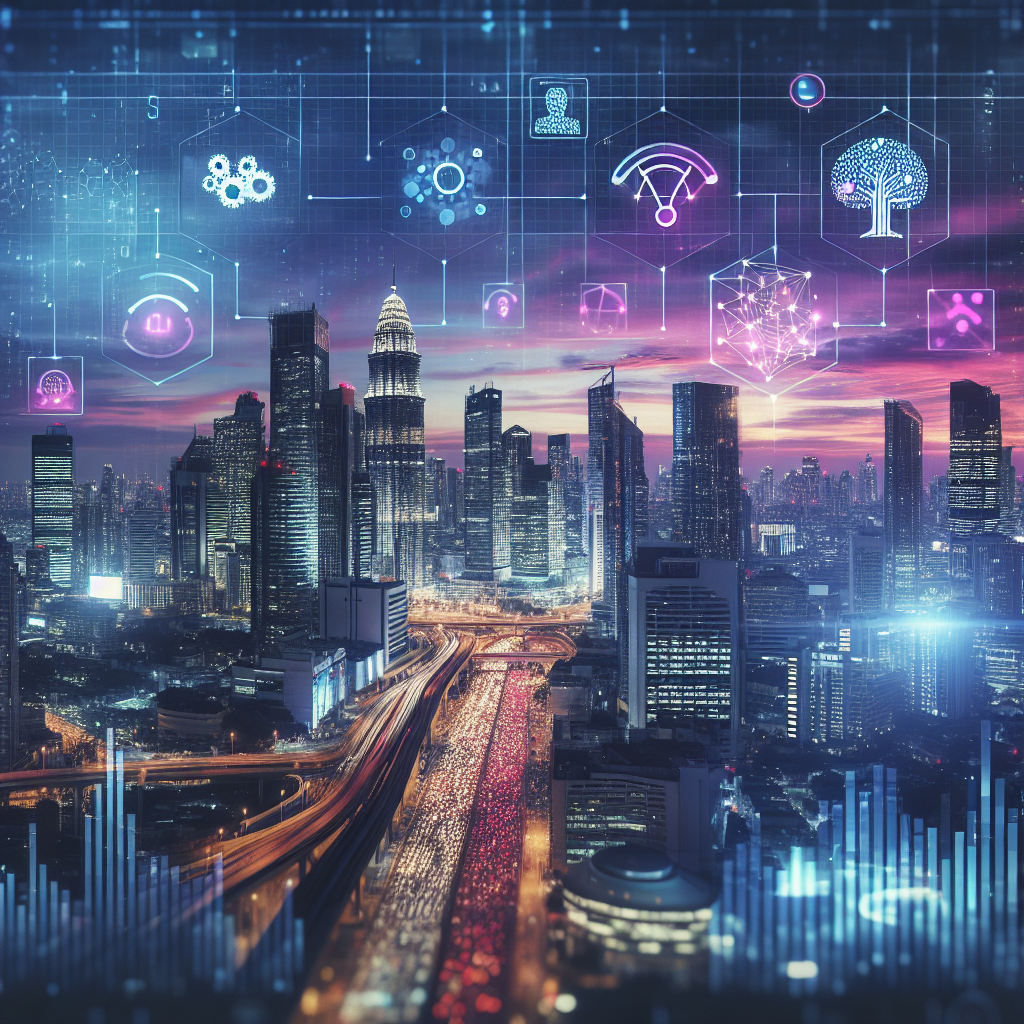In recent years, the concept of smart cities has gained significant momentum as urban areas seek to leverage technology to improve efficiency, sustainability, and quality of life for their residents. One key component of smart city development is the implementation of artificial intelligence (AI) tools. AI has the potential to revolutionize how cities are managed and operated, and can help address some of the most pressing challenges facing urban areas today.
Implementing AI tools for smart city development involves utilizing advanced algorithms and machine learning techniques to analyze and interpret vast amounts of data in real-time. This data can come from a variety of sources, such as sensors, cameras, social media, and other IoT devices, and can provide valuable insights into how a city is functioning and where improvements can be made.
One of the key benefits of AI in smart city development is its ability to optimize resource allocation and decision-making. By analyzing data on traffic patterns, energy consumption, waste management, and other key metrics, AI tools can help cities make more informed decisions on how to allocate resources and improve service delivery. For example, AI-powered traffic management systems can help reduce congestion and improve traffic flow by adjusting traffic signals in real-time based on current conditions.
AI can also help cities improve public safety and security. By analyzing data from cameras, sensors, and other sources, AI tools can help identify potential threats and alert authorities to take action. For example, AI-powered video analytics systems can detect suspicious behavior or objects in real-time and alert security personnel to investigate further.
In addition to optimizing resource allocation and improving public safety, AI can also help cities become more sustainable and environmentally friendly. By analyzing data on energy consumption, waste generation, and other environmental factors, AI tools can help cities identify areas where they can reduce their carbon footprint and improve their overall sustainability. For example, AI-powered energy management systems can help optimize energy usage in buildings and reduce overall energy consumption.
Overall, the implementation of AI tools in smart city development has the potential to transform how cities are managed and operated, leading to more efficient, sustainable, and livable urban environments. However, there are also challenges and considerations that need to be taken into account when implementing AI in smart city projects.
One of the key challenges of implementing AI in smart city development is data privacy and security. As cities collect and analyze vast amounts of data from various sources, there is a risk that this data could be compromised or misused. It is important for cities to have robust data privacy and security policies in place to protect the personal information of their residents and ensure that data is handled responsibly.
Another challenge is ensuring that AI systems are transparent and accountable. As AI algorithms become more complex and autonomous, it can be difficult to understand how they are making decisions and ensure that they are fair and unbiased. It is important for cities to develop ethical guidelines and oversight mechanisms to ensure that AI systems are used responsibly and in the best interests of their residents.
In addition to data privacy and transparency, there are also technical challenges that need to be addressed when implementing AI in smart city projects. AI algorithms require large amounts of data to train and operate effectively, and cities need to have the infrastructure and technical expertise in place to collect, analyze, and interpret this data. It is important for cities to invest in the necessary technology and skills to successfully implement AI tools in smart city development.
Despite these challenges, the potential benefits of implementing AI in smart city development are significant. By harnessing the power of AI to analyze data, optimize resource allocation, improve public safety, and enhance sustainability, cities can become more efficient, resilient, and livable for their residents. As more cities around the world embrace the concept of smart cities, AI will play an increasingly important role in shaping the cities of the future.
FAQs:
1. What are some examples of AI tools that can be implemented in smart city development?
– Some examples of AI tools that can be implemented in smart city development include traffic management systems, energy management systems, public safety and security systems, and environmental monitoring systems.
2. How can AI help improve traffic management in smart cities?
– AI-powered traffic management systems can help reduce congestion, improve traffic flow, and optimize traffic signals in real-time based on current conditions. This can help reduce travel times, emissions, and fuel consumption in urban areas.
3. How can AI help improve public safety and security in smart cities?
– AI-powered video analytics systems can help detect suspicious behavior or objects in real-time and alert security personnel to investigate further. This can help improve public safety and security in urban areas and enhance emergency response times.
4. What are some challenges of implementing AI in smart city development?
– Some challenges of implementing AI in smart city development include data privacy and security concerns, transparency and accountability issues, and technical challenges related to data collection, analysis, and interpretation.
5. How can cities address the challenges of implementing AI in smart city projects?
– Cities can address the challenges of implementing AI in smart city projects by developing robust data privacy and security policies, ethical guidelines, and oversight mechanisms to ensure that AI systems are used responsibly and in the best interests of their residents. Cities also need to invest in the necessary technology and skills to successfully implement AI tools in smart city development.

